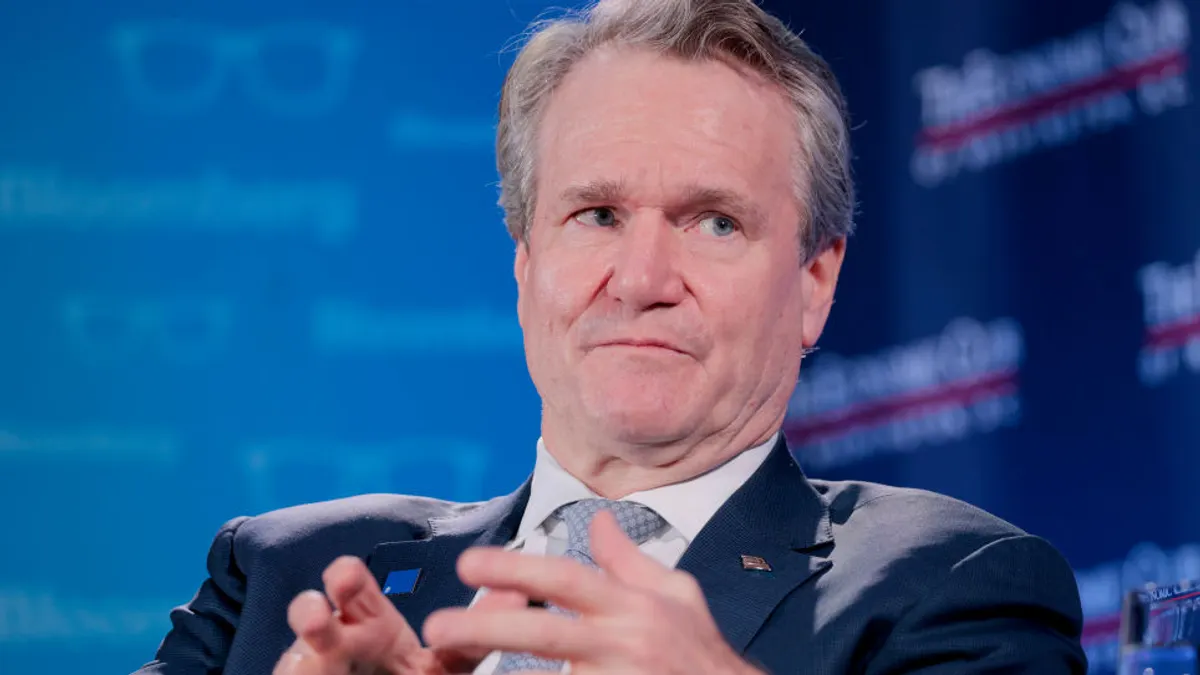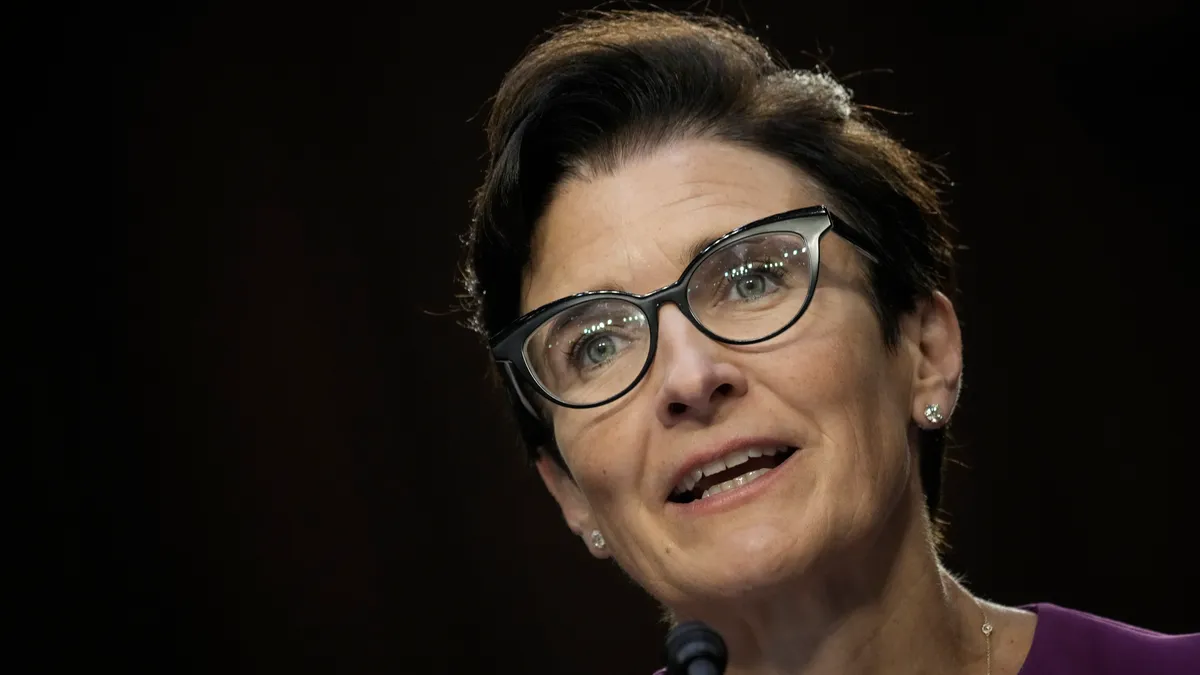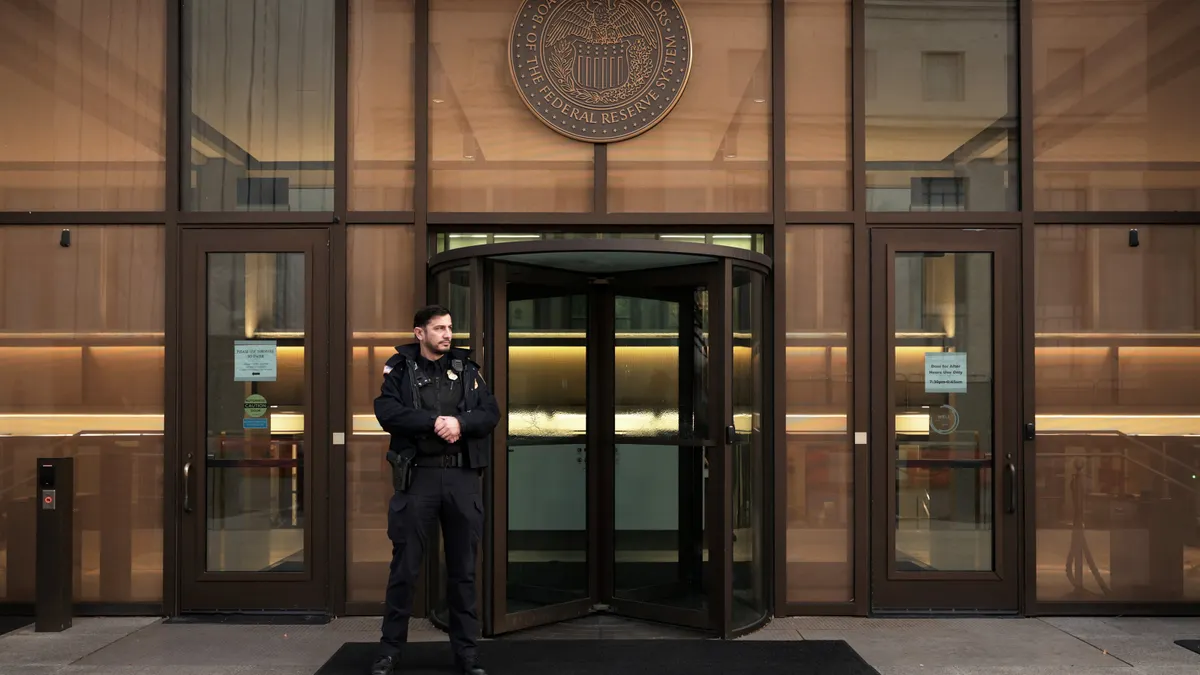The Senate voted Wednesday to overturn a September 2024 rule from the Office of the Comptroller of the Currency that would end expedited merger reviews.
The OCC rule itself is a rollback of a 1996 policy that deems bank deals as approved on the 15th day after the end of a comment period unless the regulator removes the filing from expedited processing.
When proposing the rule last year, Michael Hsu, the Biden administration’s acting chief of the OCC, said he aimed to increase transparency in the merger evaluation process and strike a balance between two risks inherent in bank deals.
“One risk is that we approve too many mergers and therefore we’re approving bad mergers. The other risk is we approve too few mergers and therefore there are good mergers that should happen that aren’t,” he said. “The purpose of being transparent is to encourage more accuracy on both ends.”
The updated OCC rule puts greater focus on the agency’s effort to weigh the financial stability risk of approving a deal against the risk of denying it, especially if the transaction involves a troubled institution.
But Republican lawmakers in both houses of Congress introduced resolutions to nullify the OCC rule through the Congressional Review Act, arguing the regulator is reaching beyond its mandate.
“The Biden administration’s OCC injected politics into the merger process, discouraging responsible growth,” Rep. Andy Barr, R-KY, said in a statement last month.
Barr argued that by erecting arbitrary hurdles, the OCC would unintentionally limit community banks’ ability to compete in the marketplace.
“By allowing banks to realize economies of scale and pass cost savings on to consumers, these acquisitions result in better rates, lower fees, and expanded access to credit — especially in underserved communities,” Barr said.
Sen. John Kennedy, R-LA, introduced a companion resolution – and that is the measure that passed in the Senate on Wednesday by a 52-47 vote. Barr’s House bill is pending a similar vote.
President Donald Trump has pledged to help Congress reverse Biden-era regulations when lawmakers invoke the CRA. Indeed, the Senate and House have each passed resolutions to overturn, through the CRA, a Consumer Financial Protection Bureau final rule that would cap overdraft fees at $5.
Wednesday’s vote comes weeks after the OCC and Federal Reserve approved Capital One’s $35.3 billion acquisition of Discover – a green light that Sen. Elizabeth Warren, D-MA, equated to a “rubber stamp.”
In the days after Capital One proposed the deal, Warren wrote Hsu, accusing the OCC – even after proposing the halt to expedited reviews – of talking tough but failing to follow through.
“The [OCC] approved almost every merger application it received in the last three years: 43 mergers in 2021, 30 in 2022, and 23 in 2023,” Warren wrote to Hsu in February 2024.
The Capital One-Discover deal, she inferred, gave the OCC a chance to make good on its newfound regulatory clampdown.
By approving the deal, though, the OCC is allowing Capital One to absorb the kind of troubled institution – Discover – that the agency’s Biden-era leaders were flagging a year ago in the rule change, Jeremy Kress, an associate professor of business law at the University of Michigan, argued last month.
The deal was approved on the condition that Discover address three consent orders stemming from a long-running price misclassification issue. They come with an attached price tag of roughly $1.5 billion in penalties.
“The overwhelming sense one gets upon reading [the regulatory approval] order in conjunction with today’s Discover enforcement action is that the Fed thinks Discover is a problem bank and that Cap One can take the problem off their hands,” Kress said, among a string of 20 posts on social media arguing against the Capital One-Discover deal.
The Barr and Kennedy resolutions may be seen as clearing the deck for a philosophical shift under the Trumpian version of bank regulators.
Federal Deposit Insurance Corp. Acting Chair Travis Hill has prioritized curtailing the timeline of bank merger approvals by replacing a 2024 rule his agency floated at the same time as the OCC that similarly pushed stricter guidelines on deals.
Likewise, Fed Gov. Michelle Bowman, the Trump administration’s nominee to become the central bank’s vice chair for supervision, has advocated for letting go of “binary thinking” – that regulators must promote safety and soundness while not stifling economic activity.
“We must approach the task of bank regulation with an understanding and appreciation of these trade-offs, coupled with an affirmative acknowledgment that the banking system is an important driver of business formation, economic expansion and opportunity,” she said in January.
If the House also votes to overturn the OCC’s bank merger policy – and Trump signs it – the regulator would be barred from issuing a “substantially” similar rule.
Barr, for at least a year, has railed against the time it takes for banking regulators to evaluate deals, calling for a “shot clock” of sorts to prevent transactions from dragging out.
“The regulatory purgatory, the indecision, is what we’re concerned about here,” he said last May.




















